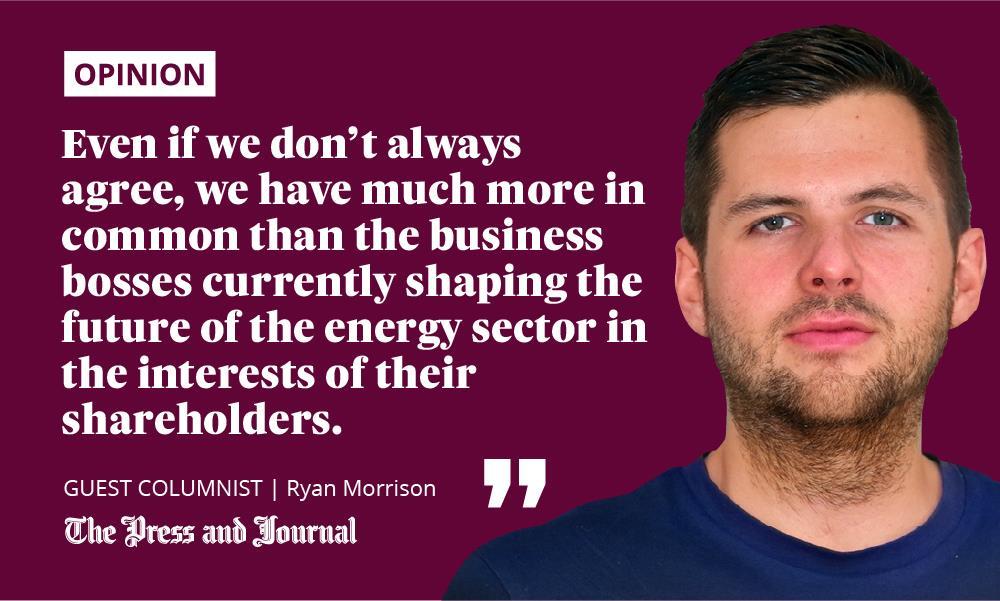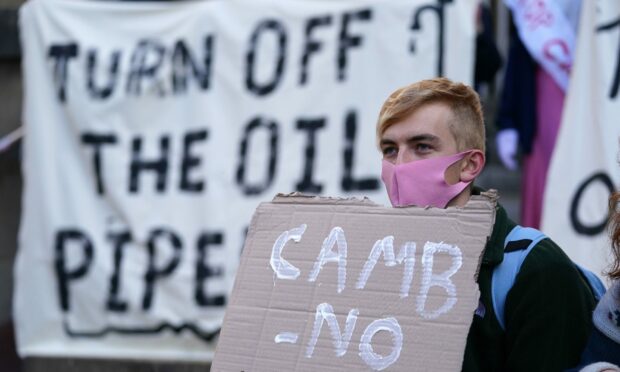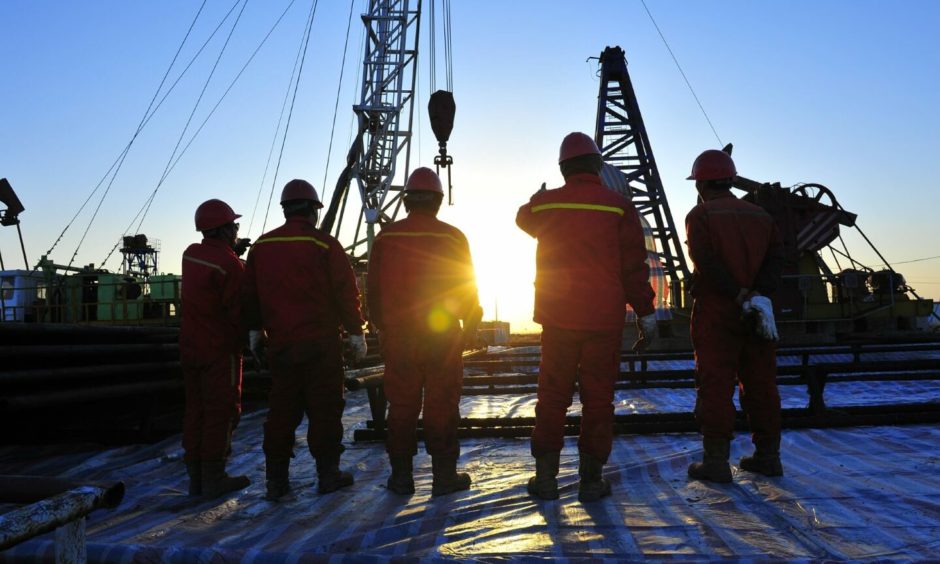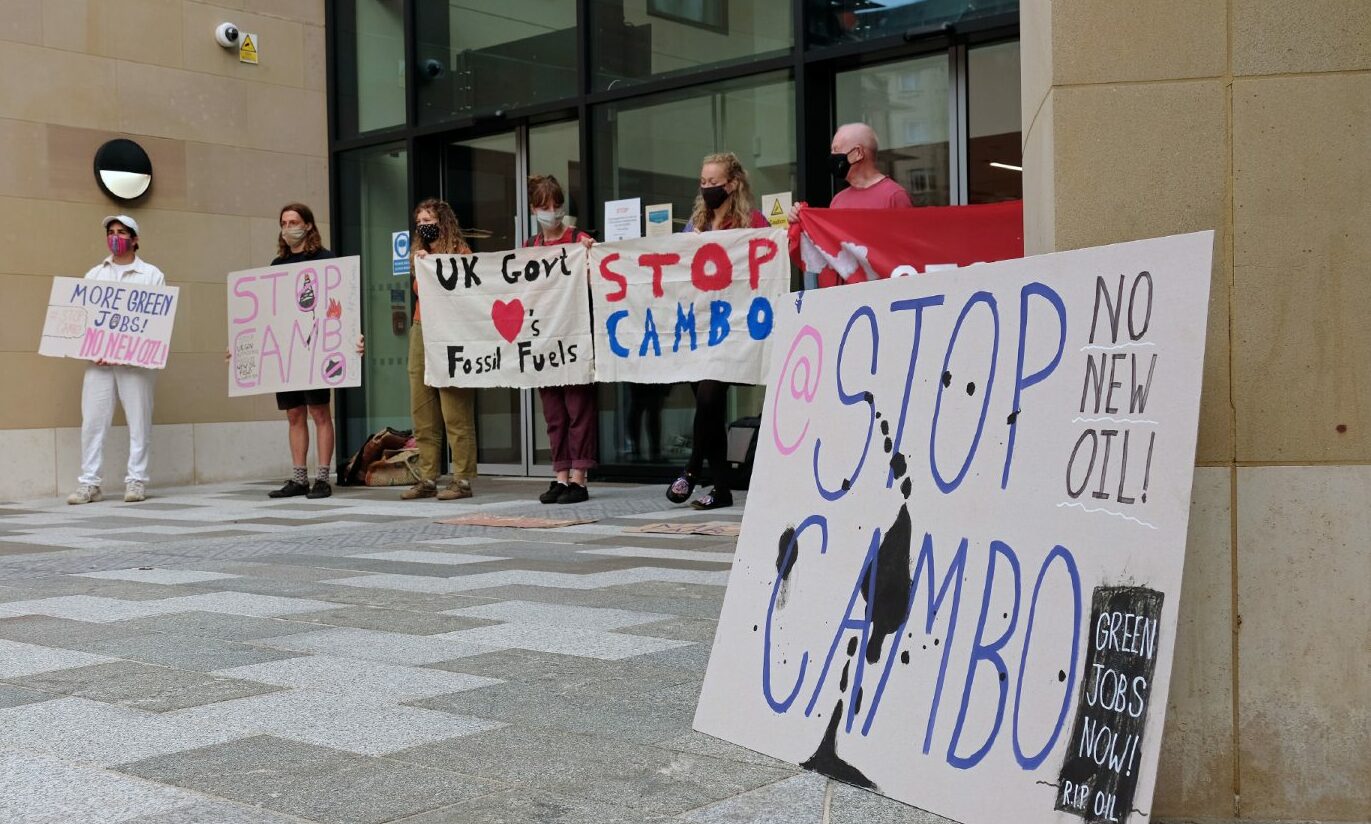Siccar Point Energy recently announced they were pausing the proposed Cambo oil field, signalling that the project is in serious trouble.
Those worried about climate change felt joy at Shell’s earlier decision to pull out of the project, but we know that for many people across the north-east of Scotland, this news may have been met with concern, or even fear.
We at Friends of the Earth Scotland have played our part in the Stop Cambo campaign. As an organisation, we are determined to drive the action that protects people from the most devastating impacts of climate change.

In May this year, the International Energy Agency said there can be no new oil and gas fields anywhere in the world if we are to stay within the crucial 1.5C limit of dangerous temperature rises. We are opposed to projects like Cambo because of the threat they pose to people, whether they live in Ballater or Bangladesh.
I was born in Paisley and my family is from Middlesbrough. I understand why people are concerned about what comes after oil and gas. The experience of deindustrialisation is all too real in my dual hometowns. From Paisley’s thread mills, to the iron and steel of Middlesbrough, these industries were largely footnotes in the local history when I was growing up.
We don’t need to look that far back to see failures to protect people’s livelihoods. In recent years, we’ve witnessed manufacturing yards like BiFab in Fife that could help build wind farms struggling to win contracts.
The choice must never be oil and gas jobs or no jobs at all
Too often, tackling the climate crisis is presented as our planet versus people’s livelihoods – a zero sum game. We even see politicians and industry leaders presenting Aberdeen as unwilling or unable to change at the pace needed to tackle climate change. This simply isn’t true.
The impacts of climate change are already in your lives, with droughts, floods and landslips, and people in the north-east are concerned about further climate devastation.
Just transition – an idea born with American workers in the Oil, Chemical and Atomic Workers International Union in the 1970s – is a demand for decent jobs that are not harmful to the environment. The choice must never be between jobs in oil and gas that would take us beyond safe climate limits or no job at all, otherwise it is not the just transition that was first demanded.
In tackling the climate crisis, there is an opportunity to ensure a green economy is better for workers and communities than what we leave behind.
Communities and campaigners have plenty in common
We are putting time and energy into building a campaign led by workers and communities for a truly just transition away from fossil fuels. It must be led by people like you; even if we don’t always agree, we have much more in common than the business bosses currently shaping the future of the energy sector in the interests of their shareholders.
Through conversations and a survey of 1,400 offshore workers about the industry and their priorities for an energy transition, we have heard about work offshore, changes over the years and employee views on energy transition. The 2014 downturn is highlighted repeatedly as the time when conditions – pay, shift patterns, health and safety – nosedived, even as companies have ramped up their production and profits since.
From these conversations, we’ve reprioritised our campaigns to reflect worker’s concerns and the barriers they have identified to moving into renewables. A total of 94% of offshore workers told us they supported an “offshore training passport” because they were often expected to fork out for new training to work in wind, even if this duplicated parts of their existing training for oil and gas.
It’s time to prioritise, plan and invest in people
The move away from fossil fuels should be steered by communities in the north-east in a way that recognises and meets their needs. It’s a chance to leave behind rising energy bills and to end toxic air pollution choking our streets. Have you been asked what you want from the transition? Our new team member, who lives in Aberdeen, is reaching out across communities to have these conversations directly.
Cambo won’t be the end of oil and gas, but it must be the beginning of our plan for the end
There is a common thread that runs through past deindustrialisation, recent failures to create promised green jobs, and the lasting impact of the 2014 oil downturn for workers and communities around Aberdeen. It is the failure to prioritise, plan and invest in people. This needs to change if we are to win a just transition.
By working together, as climate campaigners, workers and local communities, we can shape what comes after oil and actually improve people’s lives in the city and shire.
Cambo won’t be the end of oil and gas, but it must be the beginning of our plan for the end. That is what just transition means – ordinary people concerned about their job, the climate or community, all working together to demand a better, greener future.
Ryan Morrison is a just transition campaigner at Friends of the Earth Scotland


